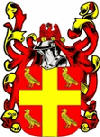ckammp
Posts: 756
Joined: 5/30/2009
From: Rear Area training facility
Status: offline

|
quote:
ORIGINAL: treespider
quote:
ORIGINAL: ckammp
quote:
ORIGINAL: treespider
quote:
ORIGINAL: Jim D Burns
quote:
ORIGINAL: treespider
I still don't see the issue...
The issue is he would have lost the battle sooner rather than later had he ďsimply detailed a reactionĒ. I guess the forces involved in this particular battle arenít large enough to press home the problem, so for arguments sake letís assume it is a large battle in China where numbers are very close but very large (100,000+ on a side) and moving even a single unit out of the hex causes the battle to be lost.
Comparatively speaking the tiny recon units arenít even a pimple on the rear end of the large units involved in our hypothetical, but because of the game mechanic a player is forced to either remove an entire division+ sized unit to react to the tiny pimples or get surrounded. Thatís the issue.
So the tiny recon units become these super powered force magnifiers that they never were historically.
In the OP the forces were pretty evenly matched trying to counter the move would have caused him to lose the base for sure. A base he probably didnít want to lose and thought he had a chance to hold, thus he stayed to try and hold it.
But in a larger Ďclose callí fight where taking out even one unit causes you to lose, itís totally out of whack that a tiny recon unit or two can block anything, but they still do and just as effectively as they did in the OPís battle.
Jim
I still don't see the issue...happens all the time in history...one side gets outflanked by the other...which simply reinforces the concept of maintaining a viable reserve to react to such a situation...
The issue is whether or not the defender was actually outflanked.
The attacker sent recon units to a hex to establish a ZOC to block the defender's line of retreat, a perfectly legitimate tactic. However, the units did not stay in the hex, but continued on and returned to the main attacking force. Thus, the hex itself was not controlled, just the hexside, which within the rules prevents the defender from moving into the hex. But what if the recon units had stayed in the hex?
According to the manual, page 191:
"A side will maintain control of a hex side until an LCU of the opposing side crosses that hex side to enter a hex. Control of that hex side will then revert to the opposing side.
Units may only LEAVE a hex across hex sides that their side controls".
I know how it works...I designed it.
When the Recon Units reentered the hex from the Opposite side they didn't magically "rejoin" the other units perse ...They re-entered the battlefield in a different "area" hence why they maintain control of the hexside they crossed entering the battlefield but still participate in the whole battle.
Think of the hexsides as ethereal "areas" as opposed to lines in the sand....A hex would have essentially 7 ethereal areas, 6 for each of its hexsides and the 7th roughly being the center of the hex.
When you enter the hex...you enter the "area" corresponding to the hexside you crossed to enter the hex...thus controlling the "area" or "hexside".
quote:
In other words, had the recon units stayed in the hex, the defender would have been free to move into the hex, but because the recon units simply moved thru the hex, the defender could not move into a now-vacant hex. Given the size of the defender's force, I find it doubtful that two recon units could effectively prevent the defenders from breaking out.
Were the blocking units of a larger size, I could certainly see them encircling the defenders, but in this case, it seems, however unintentional, to be gamey.
What was the size of the defending force? ....2 Bdes and some supporting battalions...Including Gull and Sparrow Battalions...
I'd say 1 recon regt would be sufficent to set up a roadblock to cause routed and retreated units to choose a diiferent path. In this case there were two recon regiments....
Again why didn't the defender manuever Gull and Sparrow to parry the outflanking maneuver? At the least the attacker would have had to move the recon regt's two hexes before being able to reenter the encircled hex. While the attacker is performing this maneuver why didn't the defender move the 2 battalions SE to counter?

Why the defender didn't send units to block the recon units is irrelevant.
The issue is whether a force the size of a recon regt can block a force the size of a division (15,000 men- 2 Bdes, 2 Bns, plus other forces) simply by moving thru a hex. I don't believe this should be allowed, unless the division-sized force is heavily disrupted.
I don't believe the attacker moved the recon units the way he did in a deliberate attempt to be
gamey, but I do believe this example could be used as justification for other, more overtly gamey tactics by players lacking the integrity of the OP. Why not prevent this from happening later by changing the rule now?
|
 Printable Version
Printable Version















 New Messages
New Messages No New Messages
No New Messages Hot Topic w/ New Messages
Hot Topic w/ New Messages Hot Topic w/o New Messages
Hot Topic w/o New Messages Locked w/ New Messages
Locked w/ New Messages Locked w/o New Messages
Locked w/o New Messages Post New Thread
Post New Thread